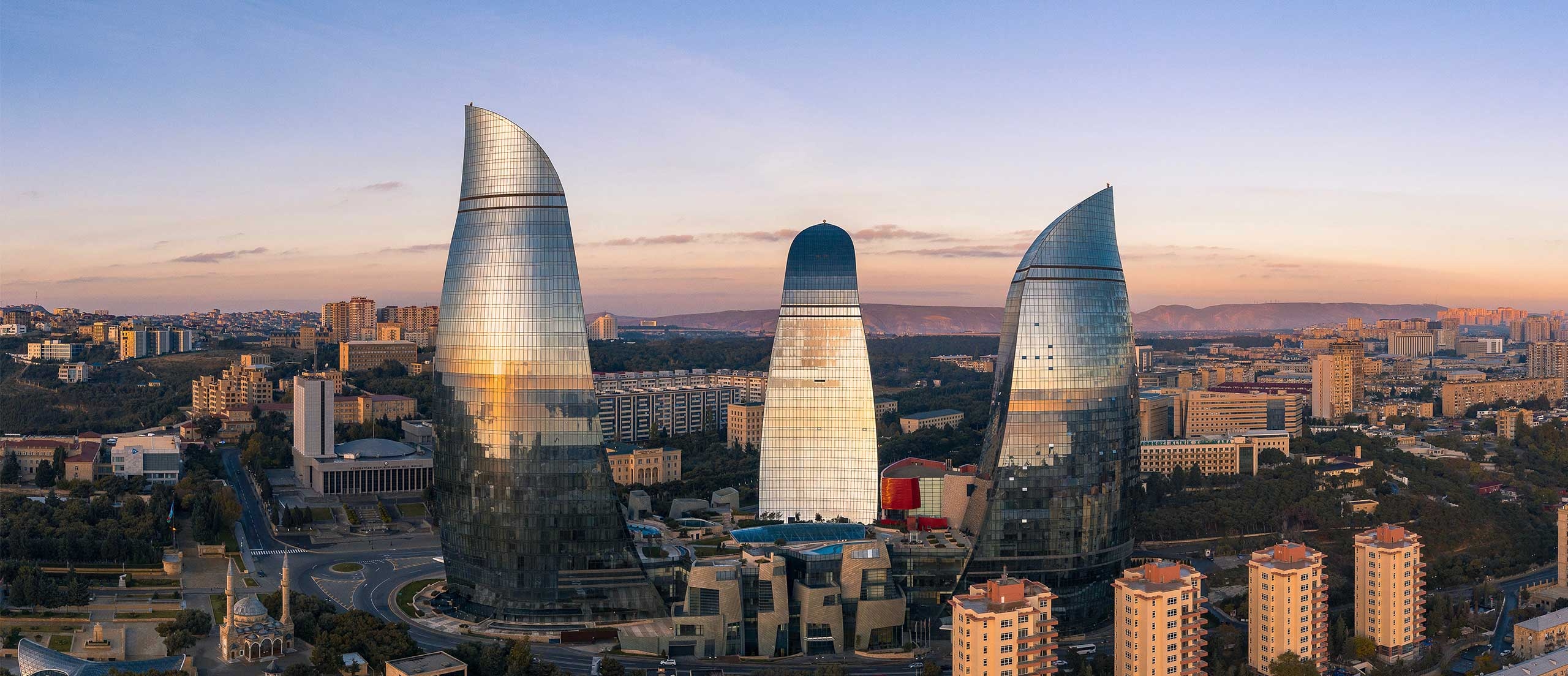Under the Patronage of the President of Azerbaijan, the Muslim Council of Elders Co-Organizes the Global Summit of Religious Leaders for Climate Early Next Month
Secretary-General of the Muslim Council of Elders: The Global Summit of Religious Leaders for Climate in Baku Reflects the Muslim Council of Elders' Ongoing Commitment to Strengthening Interfaith and Intercultural Dialogue for a More Understanding, Harmonious, and Sustainable World
Spiritual Leader of Muslims in Azerbaijan and the Caucasus: We Aim to Build on the Success of Last Year’s Global Faith Leaders Summit in Abu Dhabi to Unite the Voices of Science and Religion in Addressing Climate Challenges
Under the patronage of President Ilham Aliyev, President of the Republic of Azerbaijan, the Caucasus Muslims' Board (CMB), in collaboration with the Muslim Council of Elders, the COP29 Presidency, and Azerbaijan's State Committee for Work with Religious Organizations and the United Nations Environment Programme (UNEP), is organizing the Global Summit of Religious Leaders for Climate in Baku. The summit is part of Azerbaijan's preparations for hosting COP29 and will gather over 300 government representatives, senior UN officials, leaders of international organizations, prominent global religious leaders, scholars, and environmental experts from around the world.
The summit, held under the theme “World Religions for a Green Planet,” aims to emphasize the central role that religions play in global efforts to address climate change. It will highlight a unified stance among global and traditional religious leaders who stand against wars and environmental destruction and advocate for peaceful conflict resolution. The summit will also serve as a platform for dialogue among experts, academics, political and religious leaders, and representatives from public and international organizations. Discussions will focus on urgent modern challenges—particularly wars and environmental crises—to promote international cooperation in tackling climate change and to issue a united call to curb environmental disasters and uphold world peace. This collective vision calls for ending violence, reducing arms, and protecting our planet from environmental threats.
Over the course of two days, the summit will address several key issues, including religious perspectives on climate change, the role of social media and faith communities in protecting the environment, and building trust through interreligious dialogue. It will also explore the harmful impact of terrorism, religious and racial intolerance, hate incitement, and wars on the environment, peaceful communities, and natural ecosystems.
Judge Mohamed Abdelsalam, Secretary-General of the Muslim Council of Elders, noted that the summit, scheduled for November 5-6 in Baku, represents the Council’s ongoing commitment to promoting interfaith and intercultural dialogue to build a world of greater understanding, harmony, and sustainability. He highlighted the crucial role that religious leaders can play in addressing global challenges, especially climate change, and praised Azerbaijan’s leadership, under President Ilham Aliyev, in advancing interfaith and intercultural dialogue. He added that Azerbaijan's initiatives have fostered a society that values peaceful coexistence, tolerance, and mutual dialogue, offering an inspiring model for fostering understanding and peace.
He further noted, “Azerbaijan has declared 2024 the ‘Year of Solidarity for a Green World,’ a call that aligns with the Call of Conscience: The Abu Dhabi Joint Statement for Climate, issued last year as a key outcome of the Global Faith Leaders Summit for Climate hosted in Abu Dhabi. This solidarity encourages humanity to live in harmony with nature and work together to protect our world from climate change. We hope this summit will take another step forward in raising global awareness of climate issues.”
For his part, His Virtue Sheikh ul-Islam Allahshukur Pashazade, Chairman of the Caucasus Muslims' Board and spiritual leader of Muslims in Azerbaijan and the Caucasus, stated that the environmental challenges facing humanity today are among the most urgent and dangerous threats to life on Earth. He emphasized that the climate crisis and its destructive impacts demand stronger international collaboration which can also address climate change fundamentally and effectively. This, he noted, was successfully achieved during COP28, which served as an effective platform that brought together policymakers, religious leaders, scientists, and environmental experts, who spent time finding tangible solutions to various climate challenges.
Sheikh-ul-Islam also expressed his hope that the Global Summit of Religious Leaders for Climate in Azerbaijan will build on the success of the previous summit held in Abu Dhabi last year. He also emphasized the vital role that religious leaders can play in raising community awareness of environmental preservation and praised the Muslim Council of Elders, under the chairmanship of His Eminence Dr. Ahmed Al-Tayeb, Grand Imam of Al-Azhar, for uniting the voices of faith and science in the mission to protect our shared planet.
In 2023, as part of its mission to elevate the role of religious leaders in addressing global challenges—especially climate change—and in conjunction with the UAE’s hosting of COP28, the Muslim Council of Elders organized the Global Faith Leaders Summit for Climate on November 6-7. The summit was held in collaboration with the UAE Ministry of Tolerance and Coexistence, the COP28 Presidency, and the United Nations Environment Programme (UNEP). The summit gathered representatives from 18 religions and 30 denominations from around the world, alongside scholars, environmental experts, and civil society members, including youth, women, and indigenous peoples. The event also concluded with the Call of Conscience: The Abu Dhabi Joint Statement for Climate, urging the global community to take concrete actions to address the climate crisis and protect the planet.

